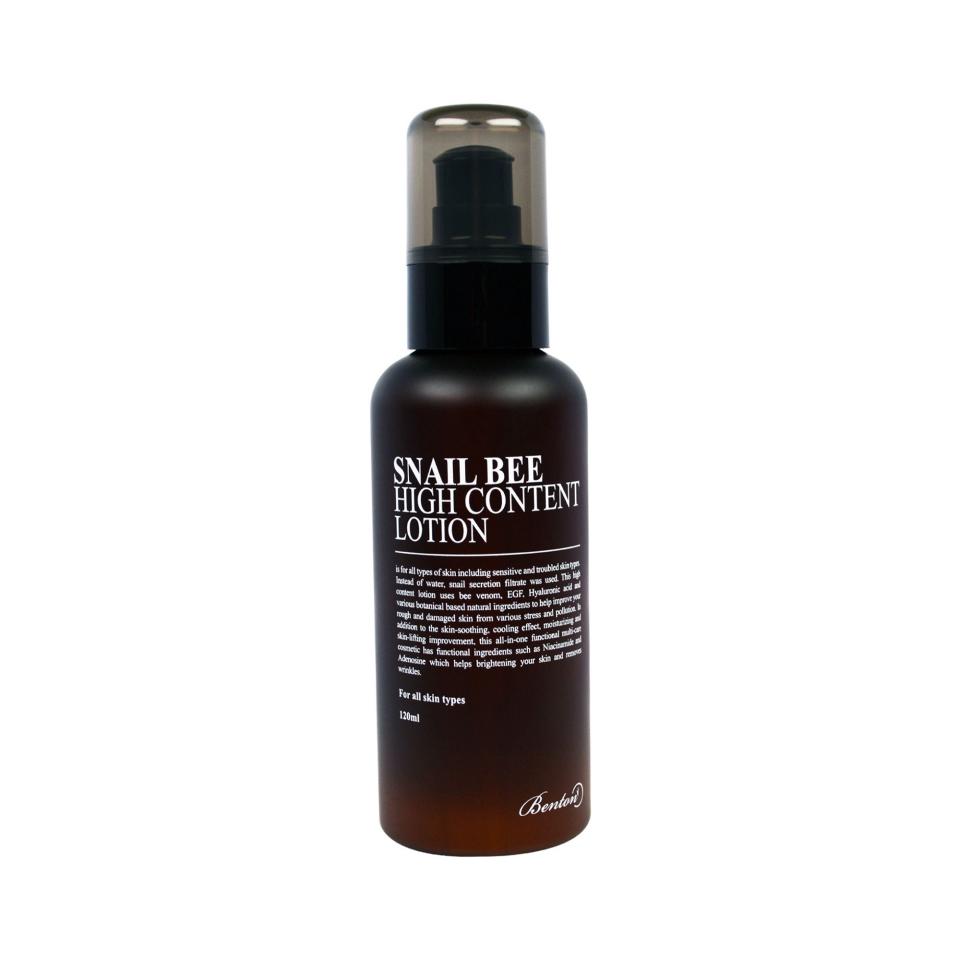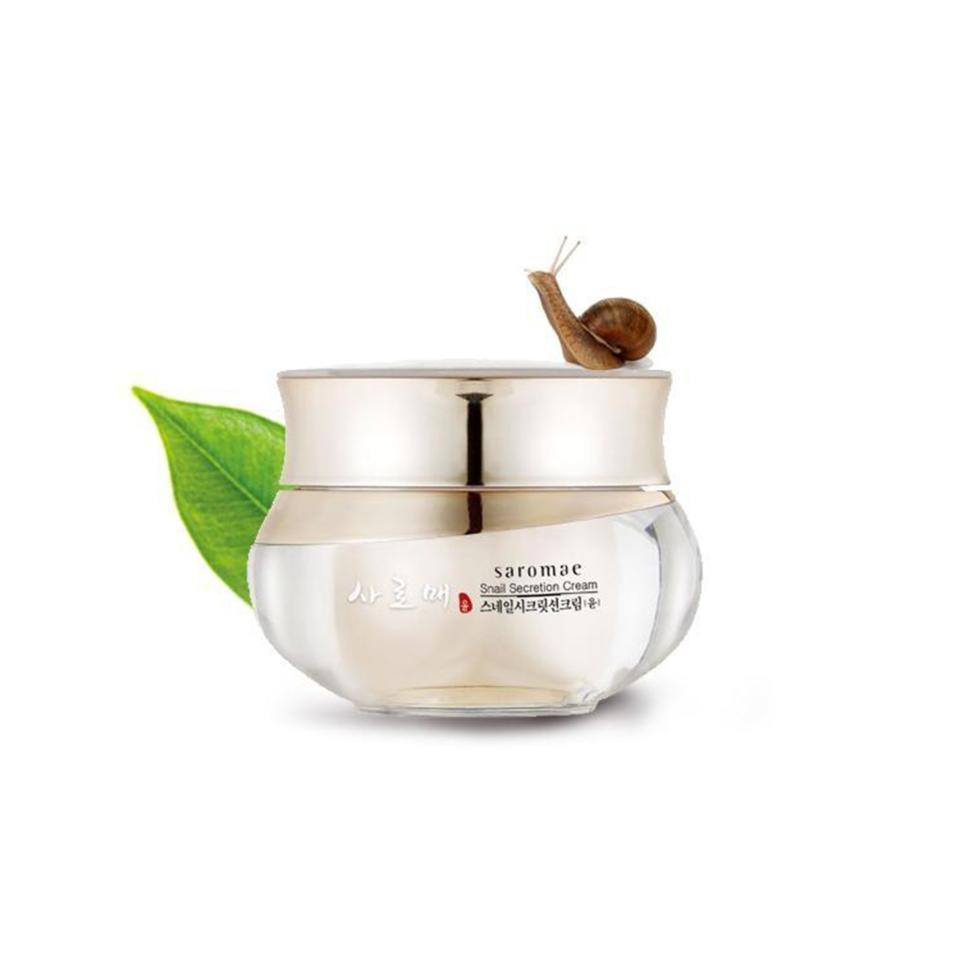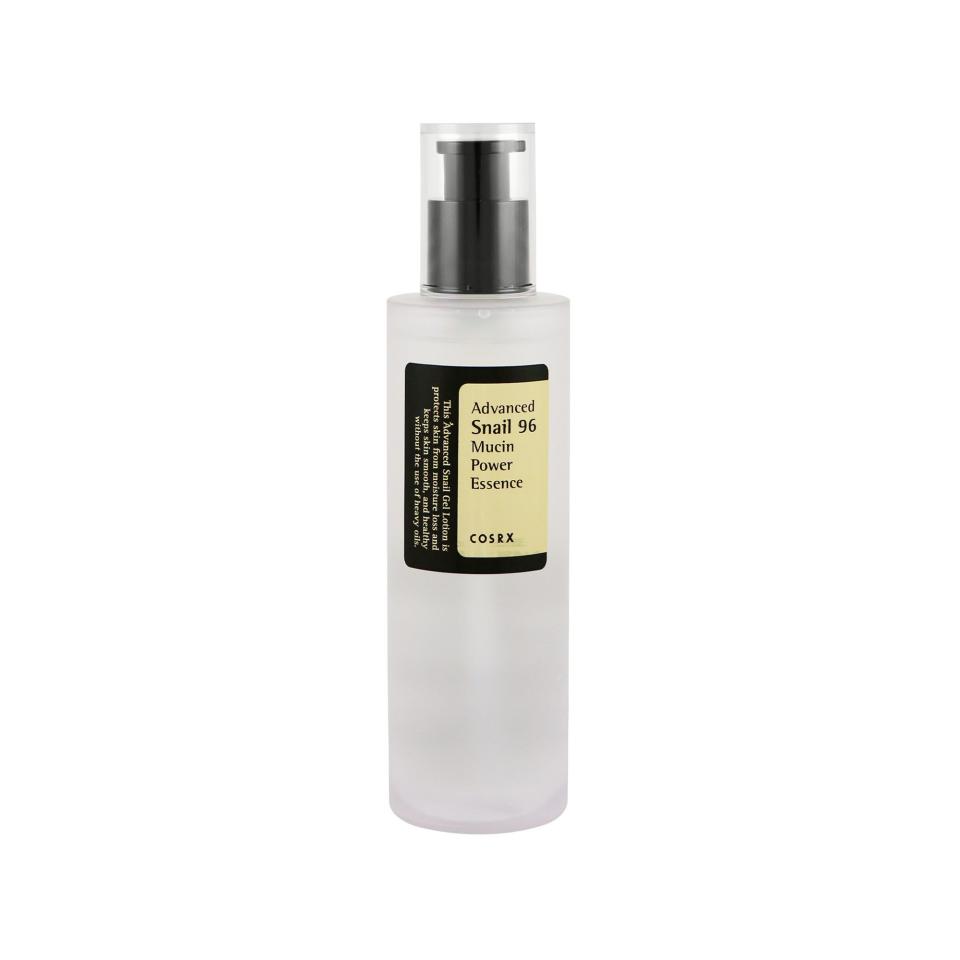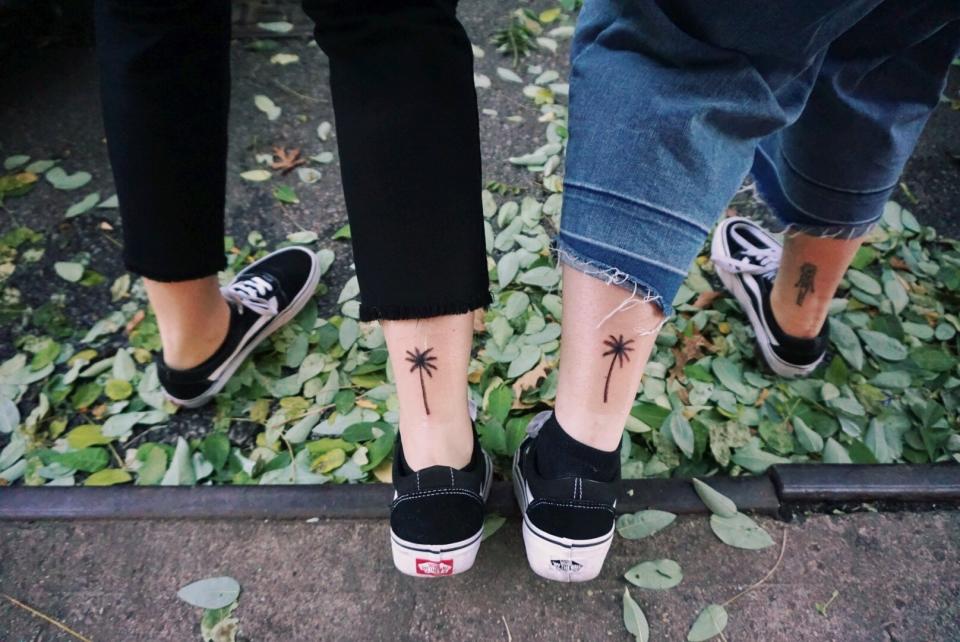People Are Using Snail Slime to Heal Their Tattoos — But Is This Controversial Aftercare Safe?
For the past couple years, people from here (as in, in the U.S.) to South Korea have been all about smearing snail secretions on their faces. As disgusting as it may sound, a couple Allure editors, including myself, love the slimy stuff for helping stave off breakouts, reducing hyperpigmentation, and nourishing the flakiest of skin. Because of its healing powers, people are starting to slather snail secretion onto their fresh tattoos, too.
After seeing this aftercare method mentioned on the Asian Beauty subreddit, I was intrigued. Typically, tattoo artists recommend Aquaphor and unscented lotion for tattoo aftercare. Even though both formulas can easily be picked up at the drugstore, I don't always have them on hand. Snail slime, though, is already a part of my skin-care routine, so the thought of dipping into my stash for new tattoos after putting it on my face was intriguing.
Before I could get too excited about this potential discovery, I decided to ask both dermatologists and tattoo artists for their thoughts on using snail mucin to help speed up the tattoo healing process. Turns out, the experts are not fans of snail secretion. (Fun fact: I got a lot of cringing and quizzical responses on using mucin.) Some dermatologists weren't comfortable even commenting on it. Others pointed out that no scientific research has ever been done on this use of snail serum, and the scientific research on snail mucin, in general, is lacking.

Here's what we know for sure, though. "Snail mucin is a complex mix of peptides, glycosaminoglycans, hyaluronic acid, antioxidants, and metal ions (such as zinc, copper, iron, and manganese)," Sejal Shah, a board-certified dermatologist based in New York City, tells Allure. High levels of hyaluronic acid help plump and hydrate skin, while antioxidants calm inflammation and promote healthy collagen production, says Joshua Zeichner, director of cosmetic and clinical research at Mount Sinai Hospital in New York City. "By providing a protective barrier and hydrating the skin, snail creams may be useful to help heal the skin after tattoos," he added.
But Shah isn't so quick to recommend it. At the end of the day, you're still putting something on an open wound. Plus, even though snail mucin concentrates, like SMD's Saromae Snail Secretion Cream, exist, these formulas may contain other ingredients that aren't fit for healing tattoos. "I would use caution when applying any product to an open wound that isn't meant to be applied to open or healing skin," she says. "It could adversely affect healing or cause skin reactions, especially as these products contain ingredients other than snail mucin."

With dermatologists not too keen on the aftercare trend, I was curious to know where some top tattoo artists stood on snail slime. After all, they are the ones who suggest aftercare products in the first place. Also, they know better than anyone what works best on their artistry. I went to six different tattoo artists from coast to coast for advice on the subject. On the West Coast, both Shannon Perry, the owner of Valentine's Tattoo Co. in Seattle, and Kayla Newell, a tattoo artist at Kilroy's Tattoo in Portland, tell me they've never heard of such a thing.
My East Coast representatives Evan Kim and Shorty Loco, tattooers based in New York City, have no experience with healing tattoos with snail mucin either. Both recommend vitamin A and D ointment instead. (And Jess Koala, who travels around the country to tattoo, hasn't heard of this either, but says, "I hope they are nice to the snails.")
Minka Sicklinger, a tattoo artist at Three Kings Tattoo in Brooklyn, wasn't aware snail slime for tattoos was a thing either. "It is utterly ridiculous. The body is more than capable of healing any tattoo if you take care of your health and immune system and do some light moisturizing during healing with a regular lotion," she tells Allure. "In no way is it ever necessary to rub snail slime on any open wound." If you want a more natural tattoo aftercare option, she suggests using coconut oil. But under no circumstances, does she think one should use snail serum. Noted.

Taking tattoo artist and dermatologist insight into account, ask yourself this before reaching for snail mucin serum to heal your new tattoo: After spending money and getting ink permanently jabbed into your skin, do you really want to risk ruining your tattoo in some way or getting an infection in the name of snail serum?
More on tattoos:
This Tiny Tattoo Trend Is the Cutest Way to Wear Your Birthstone
13 Rainbow Tattoos That Will Make You Re-Think Your Fear of Needles
Now, learn about 100 years of tattoo history:
Follow Devon Abelman on Twitter and Instagram.


